#Irish novelist
Text

When he saw friends being persecuted because of their race, their religion, he couldn't stand by and do nothing.
He was shocked at the injustice, the discrimination, the violence. He was even more shocked at other friends, who said nothing or actually conspired with the persecutors.
Many lovers of literature know Samuel Beckett and his play, "Waiting for Godot". Beckett, who was born on April 13, 1906, was an Irish novelist, playwright, theater director, poet, and literary translator, who was awarded the 1969 Nobel Prize in Literature.
What you may not know about him is that he had a secret - he had been a French Resistance spy, who received the Croix de Guerre and the Médaille de la Reconnaissance Française from the French government for his bravery during the war.
For three decades after the war, only a few of Beckett's closest friends knew of his secret - when he risked his life as a liaison agent (and translator of secret reports). Beckett also narrowly escaped arrest by the Gestapo in Paris in August 1942, after many of his cell were betrayed and deported to concentration camps, according to biographer James Knowlson.
Beckett, who lived in Paris most of his adult life, was in France during the German occupation. As an Irish citizen, he was publicly known to be neutral, but, secretly, he was horrified, disgusted at what he was witnessing, seeing the rise of Nazism and racial hatred. He saw Jewish friends abused, assaulted, then rounded up and arrested. He decided to stay in France as a symbol of sympathy for his French friends.
When one of his friends was arrested and sent to a concentration camp, Beckett helped his friend's wife, with complete disregard for his own personal safety, giving her his rations.
The wife would say, "In 1941, my husband Paul Léon was arrested and was being starved and tortured by the Germans (we were all in Paris at that time). I was trying to get food packages together and it was an almost impossible task. Sam Beckett used to bring me his bread ration and also his cigarette ration, so I could get them through to the camp. I will never forget this great kindness on his part. At that time he was probably in almost as much trouble as we were, and he certainly needed those rations himself."
Another friend would be killed by the Nazis, which would embolden Beckett to join the French Resistance and a Paris-based cell of British SOE (Special Operations Executive).
Beckett would say as he saw his friends being arrested, “you simply couldn’t stand by with your arms folded."
“I was so outraged by the Nazis," he would explain, "particularly by their treatment of the Jews, that I could not remain inactive."
Beckett would later be known for writing "Waiting for Godot" which many view as a play on existentialism, of "doing nothing," but others have different interpretations.
Scholar Marjorie Perloff would actually see in Beckett's work "Waiting for Godot" as "the tension between passivity and action that characterizes this very particular form of waiting — a waiting on the part of human beings thrust into a very particular — and wholly unknown —situation.”
Reviewer Graham Hassell saw the play as "an allegory of the Cold War" or of French Resistance to the Germans.
Beckett actually wrote in "Waiting for Godot":
"Let us do something, while we have the chance! It is not every day that we are needed. Not indeed that we personally are needed. Others would meet the case equally well, if not better. To all mankind they were addressed, those cries for help still ringing in our ears! But at this place, at this moment of time, all mankind is us, whether we like it or not."
The Jon S. Randal Peace Page

26 notes
·
View notes
Text
#OTD in 1911 – Birth of novelist and satirist, Brian O’Nolan, in Strabane, Co Tyrone.
Born in Strabane, Co Tyrone, Brian O’Nolan is regarded as a key figure in postmodern literature. He was an Irish novelist and satirist, best known for his novels ‘An Béal Bocht’, ‘At Swim-Two-Birds’ and ‘The Third Policeman’ written under the nom de plume Flann O’Brien. He also wrote many satirical columns in the Irish Times under the name Myles na gCopaleen.
O’Nolan’s novels have attracted a…
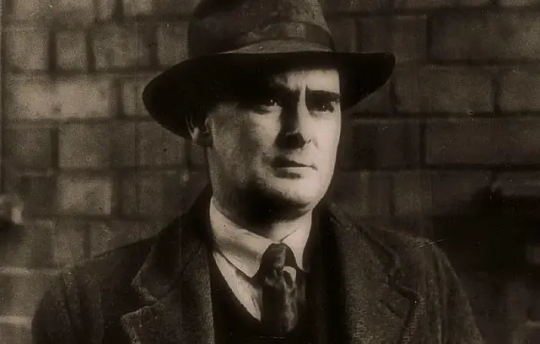
View On WordPress
#&039;An Béal Bocht&039;#&039;The Third Policeman&039;#At-Swim-Two-Birds#Brian O&039;Nolan#Co. Tyrone#Flann O&039;Brien#Google Doodle#Irish Novelist#Myles na gCopaleen#Satirist#Strabane
5 notes
·
View notes
Text

“Mistakes are the portals of discovery.”
- James Joyce
#photography#milwaukee#gothic#stone#iron#green#building#wisconsin#photograph#photo#green aesthetic#academia#art#artists on tumblr#JamesJoyce#Irish novelist#quote
19 notes
·
View notes
Text

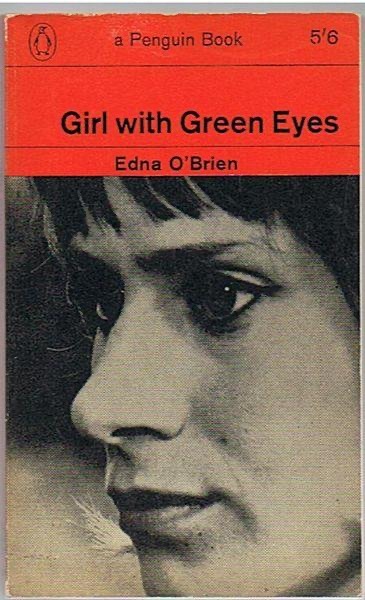
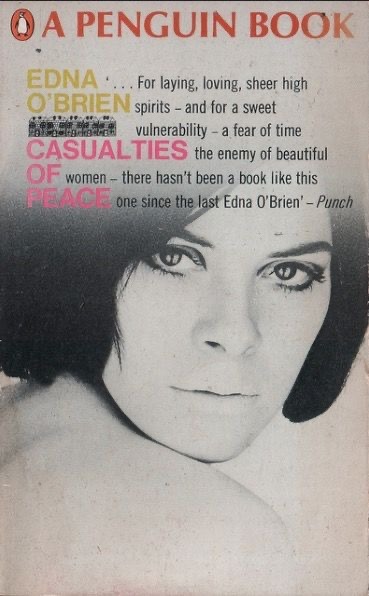
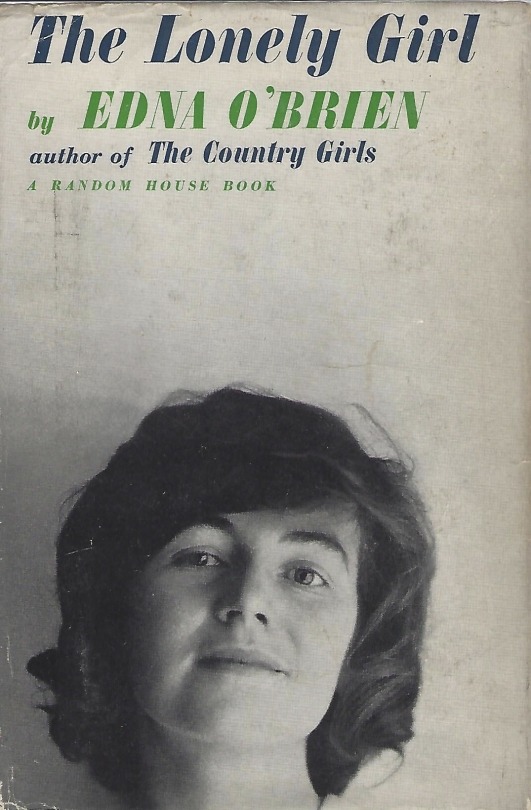

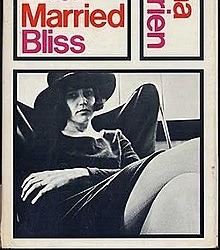
Edna O'Brien novels
0 notes
Text
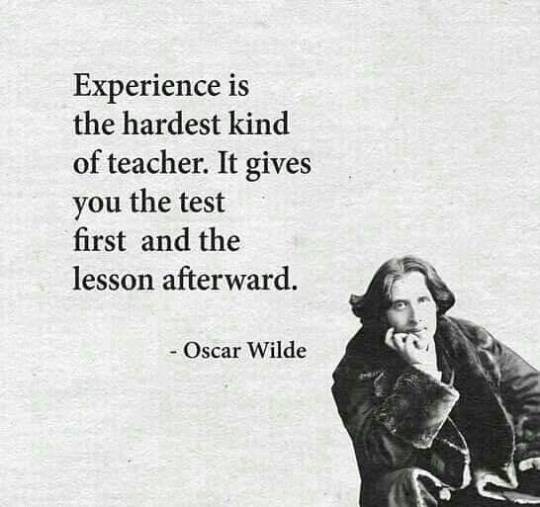
Oscar Wilde was full of witticisms until the very end..
#Oscar Wilde#Irish poet#playwright#humour#UK#Dublin#quotation#Victorian era#English literature#novelist#Ireland#controversy#famous quotes#experience#lesson#1854 - 1900
118 notes
·
View notes
Text
my brain will just merge unrelated vaguely similar looking people into one. i genuinely get the faces of hozier and kitani tatsuya and matayoshi naoki mixed up
12 notes
·
View notes
Photo

People love talking about writers as storytellers, but I hate being called that: it suggests I got it from my grandmother or something, when my writing really comes out of silence. If a storyteller came up to me, I'd run away.
- Colm Tóibín
Born and bred in Wexford, ‘Ireland’s corner county’, author Colm Tóibín cannot escape his home place or his favourite pub - nor would he want to, as he reveals in the title essay in his new collection, A Guest at the Feast.
#toibin#colm toibin#quote#literature#author#writer#novel#novelist#creativity#writing#arts#culture#irish#icon#stories#story teller#silence
52 notes
·
View notes
Text
"Hope is such a bait, it covers any hook."
Oliver Goldsmith - Anglo-Irish Novelist - 1728-1774
#quoteoftheday#quotes#quotesoftheday#quotes of tumblr#writers on tumblr#writerscommunity#authorsquotes#oliver goldsmith#novelist#irish#ireland#anglo irish#hope#quotes about hope
2 notes
·
View notes
Text

Guess who this is! 😉😉
made in picrew
#picrew#doll#past lives#reincarnation#i guess i sort of look like that... but not much#past life#regency#women writers#they didn't have a better shade for hazel eyes#and that is as close as it got to strawberry blonde hair#lady caroline lamb#gothic novelist#poet#bon ton#anglo-irish aristocracy
2 notes
·
View notes
Text
HAPPY BIRTHDAY, SAMUEL BECKETT !
Beckett brooding over nothingness….
Samuel Beckett, an Irish-born playwright, novelist, and poet, stands as a towering figure in 20th-century literature. Born on April 13, 1906, Beckett’s works delve into themes of existentialism, absurdism, and the human condition, earning him acclaim and a Nobel Prize in Literature in 1969.
Beckett’s most famous work, “Waiting for Godot,” epitomizes his…

View On WordPress
#ABSURDISM#BECKETT#EXISTENTIALIST PHILOSOPHY#HAPPY BIRTHDAY SAMUEL BECKETT#IRISH AUTHOR#Nobel Prize.#Nothingness#NOVELIST#PLAYWRIGHT#SAMUEL BECKETT#WAITING FOR GODOT
0 notes
Text

Bram Stoker
(8 November 1847 – 20 April 1912)
“The Great Storytellers - Bram Stoker”
(Ep 21-37)
Listen on SoundCloud
0 notes
Text
there's this one historical power couple whose dynamic i'm just obsessed with, both born in the mid 1800s. michał wojnicz (anglicized wilfrid voynich) was a polish book dealer who discovered what's today called the voynich manuscript, a mysterious book made of parchment carbon-dated to the early 1400s, full of fantastical illustrations and written in a (possibly coded) language that to this day with all the tech we have is still unintelligible to us.
michał was married to ethel boole, an irish novelist and pianist who was the first person to translate fryderyk chopin's correspondence from polish to english (published under e.l. voynich). since i study chopin documents as a hobby, i can only imagine being the first person to try to put those into english with little historical research to go on, and polish wasn't her native language... it must've been super difficult, and she couldn't even say shit because there was poor michał sitting in the other corner pulling his hair out over a LITERALLY indecipherable manuscript.
ethel: gosh this passage is so odd, i don't know if --
michał: WHAT DID U SAY
#also they were both anti tsarist revolutionaries#the voynichs#history#literature#chopin#voynich manuscript
407 notes
·
View notes
Text
#OTD in 1911 – Birth of novelist and satirist, Brian O’Nolan, in Strabane, Co Tyrone.
#OTD in 1911 – Birth of novelist and satirist, Brian O’Nolan, in Strabane, Co Tyrone.
Born in Strabane, Co Tyrone, Brian O’Nolan is regarded as a key figure in postmodern literature. He was an Irish novelist and satirist, best known for his novels ‘An Béal Bocht’, ‘At Swim-Two-Birds’ and ‘The Third Policeman’ written under the nom de plume Flann O’Brien. He also wrote many satirical columns in the Irish Times under the name Myles na gCopaleen.
O’Nolan’s novels have attracted a…
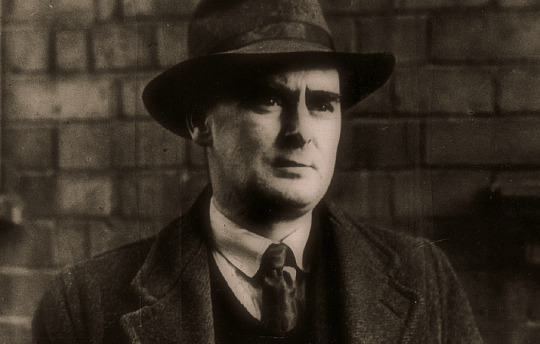
View On WordPress
#&039;An Béal Bocht&039;#&039;The Third Policeman&039;#At-Swim-Two-Birds#Brian O&039;Nolan#Co. Tyrone#Flann O&039;Brien#Google Doodle#Irish Novelist#Myles na gCopaleen#Satirist#Strabane
6 notes
·
View notes
Text
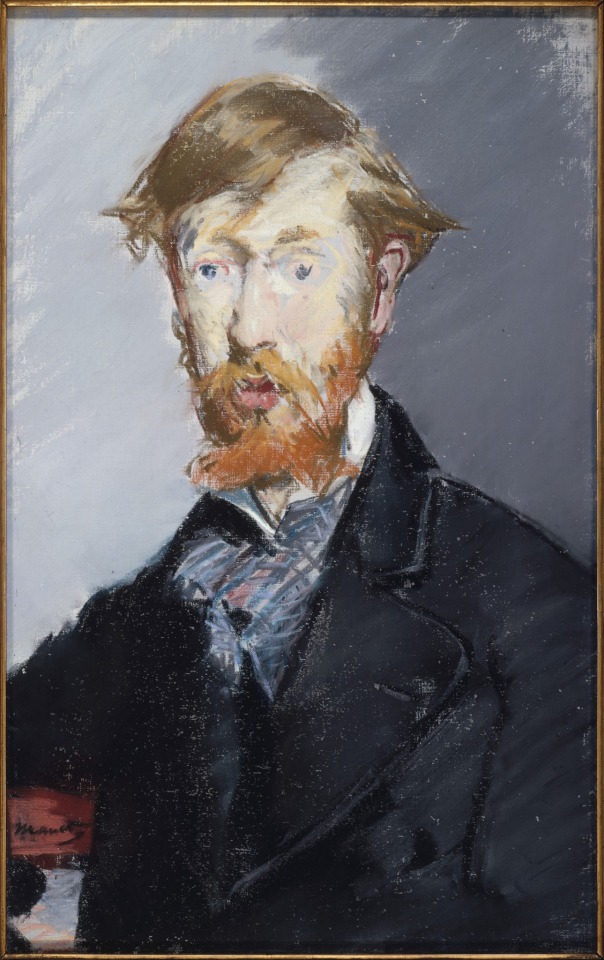
“A man’s life is brief; a book's life may be prolonged century after century.” - Irish novelist, George Moore (1852 - 1933). Painted by Edouard Manet, 1879.
56 notes
·
View notes
Text
2023 bookpost 🥳🥳🥳
43 books read this year! about 2/3rds of last year's number, but i fell off pace in summer and for the last two months and never actually have a target or care about my pace anyways, so 43 is a good solid number imho. as last year, full list with light commentary below, recs are bolded:
JANUARY
Neuromancer by William Gibson
The Browns of California: The Family Dynasty that Transformed a State and Shaped a Nation by Miriam Pawel (i am punished for my desire to learn more about the two governors brown's effects on the state of california with: family hagiography. should have known tbh)
Between Two Fires by Christopher Buehlman (SOOOOOO GOOD. apocalyptic/religious horror in 1350's france during the black plauge. for fans of the terror, and fans of people who are in love but for whom the love won't alwayshelp!)
The Mirror and the Light by Hilary Mantel (hilary ilu u were one of the greatest novelists of the past hundred years it was an honor to be alive at the same time as you. this could have been 200 pages shorter. ilu tho)
Did Ye Hear Mammy Died? by Seamas O’Reilly (short, sweet childhood memoir of the irish writer/comedian who, famously, tweeted that story about meeting the president of ireland on ketamine.)
FEBRUARY
Either/Or by Elif Bautman (girls can i tell you. i didn't realize this was a sequel until like 100 pages into the book. that was on me.)
Two Doctors Gorski by Isaac Fellman (ah mr fellman. lol)
The Swimmers by Julie Otsuka (really cool piece of fiction, first half told from the collective viewpoint of a group of regulars at a public swimming pool, second half about the one specific swimmer who's losing her independence to dementia. short, packs a punch)
Rebecca by Daphne du Maurier (UNDEFEATED!)
One Man’s Terrorist: a Political History of the IRA by Peter Finn
Nightcrawlers by Leila Mottley (love to see local 22yos succeed wildly. does NOT mean this book was good god bless)
MARCH
The Memory Police by Yoko Ogawa
The Passenger by Cormac McCarthy
Stella Maris by Cormac McCarthy (to be clear, if you are not a cormac mccarthy fan, these books will not make you his fan. they are very much about this man's incredible hopelessness regarding a world that has invented and used the atomic bomb. what can be redeemed, etc etc. i loved them, despite a major part of the plot being consensual sibling incest, they were beautiful and phenomenal, they were not light reading)
APRIL
A Smile in his Lifetime by Joseph Hansen
Glory by NoViolet Bulawayo (cannot recommend the audiobook highly enough. emma read the paper copy to catch up to where i was in the audiobook so we could listen together on a car trip, and she agreesTM that the audiobook is the way to go)
MAY
Barbarian Days by William Finnegan
The Dark Lord of Derkholm by Dianna Wynne Jones
JUNE
We Don’t Know Ourselves by Fintan O’Toole (really really really cool nonfiction about ireland since the 1950s, part autobiography, more parts cultural history of a very quickly changing nation. fascinating to read this within 12 months of finn's one man's terrorist, which was a very leftist history of the IRA, and keefe's say nothing, which was an only very slightly leftist history of the IRA that was most interested in like, how compelling the history is (not a drag on it). o'toole not as big on the IRA as the other two! understandable!)
JULY
The Binding by Bridget Collins
The War That Killed Achilles by Caroline Alexander (for all fans of the history of the story of the illiad!!! short and passionate!)
Flux by Jinwoo Chong (solid new debut scifi - who thought it could still happen!)
I’m Glad My Mom Died by Jeanette McCurdy
The Witch King by Martha Wells (this book sucked ass!!! have mentioned this several times already this year!!!)
An Oral History of the New York Commune, 2052–2072 by Eman Abdelhadi and M. E. O'Brien (some things about this book were fun, many were infuriating, absolute worst had to be the insistence that in the future: therapy would solve even more problems that it does today :))
The Last Samurai by Helen DeWitt (see my beautiful wife's post on the subject)
Stay True by Hua Hsu (beautiful, deserves the pulitzer, not 100% my thing but still very good)
AUGUST
Demon Copperhead by Barbara Kingsolver (the voice was hard to get used to for the first 50 pages, but i ended up really liking this tbh. i've never read copperfield, so not sure if that improved the experience)
Crying in H Mart by Michelle Zauner
The Boys by Katie Hafner (a mistake to read this, but at least the twist was funny! there wasn't anything else in the book, but only a partial waste of time at the end)
Tomorrow and Tomorrow and Tomorrow by Gabrielle Zevin (finally read this, which has truly polarized my extended social circle, but i ended up liking it. i didn't always get what it was doing 100% of the time, and didn't so much feel compelled to find out, but i tore through it and will always be a sucker for a story about that doesn't fix you but does keep you alive. can see both sides of this debate)
American Overdose: The Opioid Tragedy in Three Acts by Chris McGreal (we have to kill every sackler. solid history of the epidemic. EVERY sackler.)
SEPTEMBER
The Season by Kristen Richardson (half-baked history of the debutante social ritual. but, not like there's many other histories of the subject!)
All the Horses of Iceland by Sarah Tolmie
Big Swiss by Jen Beagin (funny, contained extensive dirtbag lesbian behaviors, but lacked some heft at the end)
In Memoriam by Alice Winn (do you s2b2? do you want some solid, tome-like origfic? do you want all of those things and also siegfried sassoon rpf? well great news!)
Now We Shall Be Entirely Free by Andrew Miller (pleaseeeeeee tell me if you have read this or do read this it was SOOOOOO GOOD and i had NEVER heard of this guy before!!! fantastically written prose, everything builds with infinite dread to a single horrible punchline, i am still wowed thinking about it)
The Trees by Percival Everett (haha hey wanna get fucked up. dark dark dark comedy)
OCTOBER
Flowers from the Storm by Laura Kinsale (really enjoyable if slightly overlong romance novel that i got off a rec list for historical romances with disabled love interests. does a really good interesting job of giving the love interest full breadth and agency despite severe processing impairment following a stroke)
Mobility by Linda Kiesling
The Rachel Incident by Rachel O’Donahughe
NOVEMBER
NO BOOK NOVEMBER MFS
DECEMBER
Not Even the Dead by Juan Gómez Bárcena (would also like to know if anyone else has read this so we can try and figure out what the fuck was going on right at the end!! also the fact that this is primarily about mexican history, written by a spaniard, with the specter of the US very prominent in the book is like. hm i would love to be able to read some mexican press reviews of this lol)
When Crack Was King: A People's History of a Misunderstood Era by Donovan X. Ramsey (picked this up following the opioid book, which discussed but didn't go deep on how the country's reaction to the opioid epidemic was so vastly different from the crack epidemic. put a lot of stuff into context lmao.)
WAIT AT SOME POINT THIS YEAR I REREAD RUMO AND HIS MIRACULOUS ADVENTURES BY WALTER MOERS. I DON'T KNOW WHEN. DIDN'T WRITE IT DOWN. BUT I DID REREAD IT. 44 BOOKS. shout out to mr. moers for writing some extremely fucking creepy books for teenagers <3
okay i was gonna do more about like general trends and vibes of this year's books, also about the four books i am still reading rn lol, but i have been typing for soooooooooooo long so i'm just gonna reblog with more thots in the morning. stay prepared everyone
24 notes
·
View notes
Text
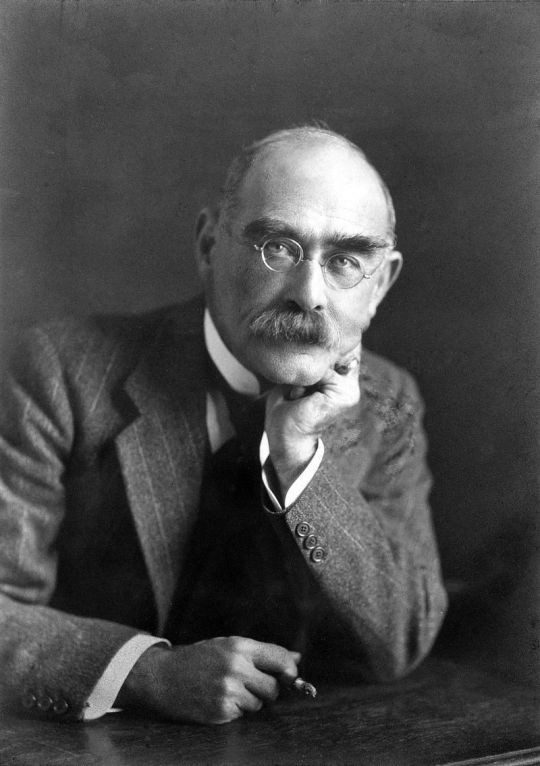
Arguably the single most influential figure in terms of how the fallen of the Great War were memorialised was Rudyard Kipling, whose own son, John, a second lieutenant in the Irish Guards, was reported (missing presumed) killed at Loos, aged 18. (His grave was not identified until 1992).
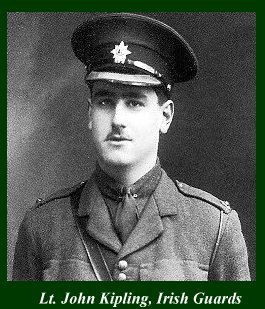
Rudyard Kipling, an internationally renowned novelist, poet, short story writer and journalist, was subsequently invited by the British government to help establish the Imperial War Graves Commission.
He applied the phrase ‘Known unto God’ for the graves in which the occupant was unidentified, and recommended that headstones be uniform and should have regimental identification wherever possible.
"...What knowledge I have of the feeling among officers and men, dead and alive, convinces me that their chief desire would be for distinctive regimental headstones which could be identified in every quarter of the world where a soldier of their regiment may be buried..."
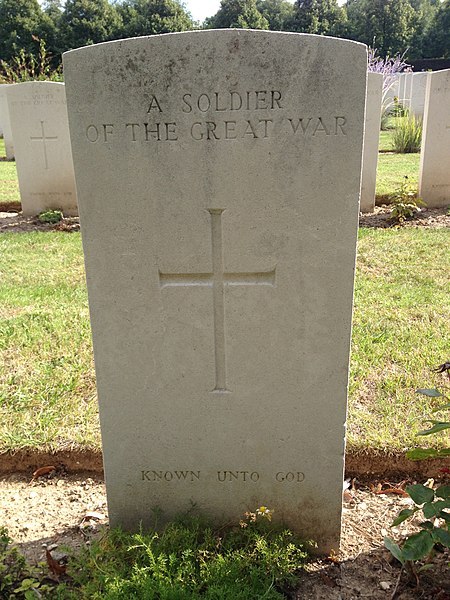
Perhaps his most significant contribution was establishing the policy that names on communal memorials be listed strictly in alphabetical order, regardless of rank, aristocratic background or class.
Upon his death in 1936, the War Graves Commission noted that Rudyard Kipling had either written, selected or approved every inscription on IWGC graves and memorials throughout the world, and had, on his own initiative, personally inspected memorial sites in Belgium, France, Egypt and Palestine.
Background from Melvyn Bragg's In Our Time (BBC Radio 4), the website of the Kipling Society, and BBC News (2016): Solving the Mystery of Rudyard Kipling's Son
#social history#working class history#rudyard kipling#the great war#world war one#first world war#british military#war memorial#military history#society#armistice day#remembrance day#lest we forget#history
46 notes
·
View notes